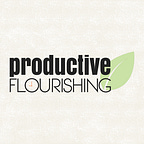A lot of people have a love-hate relationship with systems. On one hand, they can help clear up a lot of mind chatter and resolve frustrations. On the other hand, they’re not that fun. Many creative people tell themselves they just don’t get systems. In today’s episode, Marina Darlow joins Charlie to discuss the relationships between systems, being creative, and emotion, as well as some of the reasons people avoid building better systems.
Key Takeaways:
[2:35] - Many people might feel that systems/ automation take the humanity or the soul out of projects. Both Charlie and Marina agree that systems can actually allow you to focus on the things that you really care about doing by removing background chatter and the need to engage with things you’d rather not.
[4:20] - Especially among creative giants, many people think that systems will stifle their creativity. However, if you are finding it difficult to move an idea from start to finish, systems can help provide a road map for the in-between (or equipment you have to use, or a playbook).
[8:12] - Systems geeks often conflate processes as well as the tools and apps that run those processes. As a listener, it is helpful to remember that these things go hand in hand. Marina likes to think of a system as a method plus a container, or a tool that helps you implement that method. The focus should be on finding a system that helps to efficiently complete your tasks.
[11:24] - With almost every tool that you start using, there will be a learning curve. Don’t abandon it - if you’re confident in the process, then dealing with the learning curve will become much easier. This stage of getting to understand how a tool works can be difficult for people who consider themselves to be creative.
[15:42] - Splitting up the design, the build, and the following across your business can increase efficiency and decrease frustration, so different people know how to approach that space. As you’re working through new systems, remember NPS - no perfect system.
[18:03] - Marina worked with a client (a filmmaker) who wanted more help planning out his week to accomplish a big project. He was getting stuck, and Marina had him pretend he was writing some material for a series. When he was writing a story instead of writing out tasks, his planning was much easier. Turning unpleasant tasks into a story can allow us to engage with our systems more.
[23:04] - What happens when this project is extended to other clients? Many people jump on board because inventing a story or creating a narrative sounds more fun than putting tasks on the Gantt. When you create a story, you create a system that is very engaging.
[27:30] - Moneyball applied to creativity: the secret of a great player is how many times they are able to get on base. In creative work, you never really see your big hits coming. The more we are “at bat”, the greater the chance that we will have a hit more frequently.
[29:32] - You have to be careful with systems building; sometimes it’s a very sophisticated way of hiding from the very best work you need to do. A good system can help to contain the desire to perfect everything and to hide in the back.
[31:26] - When is it time to scrap systems? Systems can actually hold you back when you try to dream and create a vision. In situations where there may be an emotional block, it makes sense to get away from the current structures you have in place. In some cases of crisis mode, it may be more important to focus on communication first and then find the system that works.
[37:07] - Charlie and Marina talk about system maintenance: after you build it once, you may still need to review your key systems every quarter to see if they’re still working how you need them to. In a way, part of a good system is to self-assess.
[40:40] - When teaching your systems to new employees or new partners, there may be a learning curve as they learn how their technical skills fit into the specific context of your business.
[43:55] - What steps does Marina use with her clients to establish their own personal systems? The first step is the assessment, and she always starts with “what hurts?” Once you know where the struggles lie, you can begin building systems for that point. Also, here is where Marina begins to see how they think. Out of these things, they devise a custom process.
[47:17] - When tackling systems building, start with what hurts the most. There are many ways to determine that and to figure out which systems to tackle first. Coming from a place of emotion can help understand this as well. When you confront that emotional wall, it’s not that you’ve done something wrong, it’s that you’ve done something right and that’s where the work is.
[51:34] - Marina leaves listeners with this invitation: sit for 5-10 minutes and think about which system really bugs them the most in their current state. Think about it from the emotional perspective: what makes you feel either guilt, resentment, or avoidance to figure out what’s not quite going right.
Mentioned in This Episode:
Creative Giant Campfire Facebook Group












